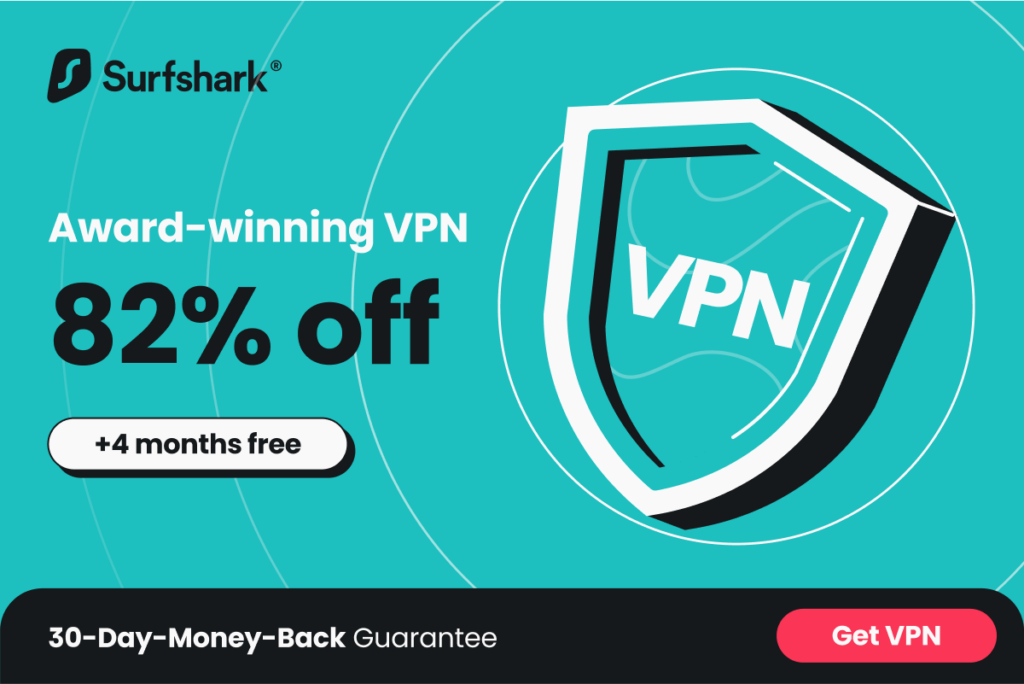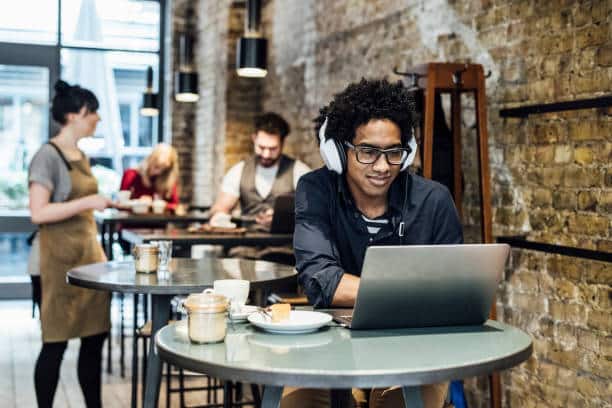You have various VPN options, but that does not mean they are ideal. A VPN should not log your data; the latter’s privacy should also be protected. If you choose a VPN that charges you for the data you use online, be sure it’s all-inclusive to avoid bandwidth caps.
When using a VPN, the best one will offer servers in multiple countries, allowing you to access prohibited content from a different locations.
Making use of a VPN
You must first download the VPN program of your choice into your laptop, smartphone, or computer. One of the VPN solutions you can explore is NordVPN. After downloading the app and signing up for PIA, you will be given a username and password.
After that, you can open your computer, log into the PIA program, and select a server from the list of available possibilities. When picking a server, choose a city that is closest to you. After successfully connecting, you can use public Wi-Fi without concern of unauthorized individuals monitoring your internet activities.
Using a VPN is quite simple. When you log in, you’ll see prompts for automatically applying settings, and the connection to your device will happen as expected. Even in seemingly safe places like hotels, libraries, or coffee shops, utilizing a VPN to access public Wi-Fi as a safety precaution should be a top concern.
Is it possible to use a VPN on public Wi-Fi?

If you use a VPN, no one can intercept your internet traffic while on public Wi-Fi, so it can’t be tracked. With VPN, your connection is always secure, so you don’t have to worry about external security concerns.
How to use public Wi-Fi networks safely
Although Wi-Fi hotspots in coffee shops, libraries, airports, hotels, universities, and other public places are convenient, they are frequently insecure. Someone else may be able to see your information if you join a Wi-Fi network and send it through websites or mobile apps. Here are some tips for using public Wi-Fi safely when out and about.
What makes public Wi-Fi so dangerous?
When you’re at home, you may safeguard your wireless network by using a strong router password, limiting which devices can connect to your network, and enabling encryption, which scrambles the information you send over the internet into a code that others can’t read. However, there isn’t much you can do to control your favorite coffee shop’s Wi-Fi network security.
Hackers may be able to eavesdrop on the information you transfer across an unsecured network, such as when you enter a password or credit card information on a website. They may even be able to capture your logins or private conversations by monitoring the keystrokes you make on your keyboard.
A hacker could use your account to mimic you and defraud individuals on your address book or test your usernames and passwords on other websites. When you use public Wi-Fi, you may share your personal information with the service companies.
To use their internet, many public Wi-Fi networks, such as those at airports and hotels, will require you to install a “digital certificate.” They may use this to check your traffic for malware, but it also allows them to read it, even if it’s going to a secure site that encrypts information.
How can you encrypt your data?
While there isn’t much you can do to make a public Wi-Fi network more secure; there are certain steps you can take to keep your data safe while using public Wi-Fi:
Securely connect to websites
You have a secure connection to the website if the web address begins with HTTPS. However, using HTTPS does not imply that a website is trustworthy. Scammers are very adept at encrypting websites.
They’ve realized that people assume HTTPS indicates a secure website, so they’ve begun incorporating it into their own. So, while your data is encrypted on its route to the site, it isn’t safe from the crooks who run it.
Consider using a virtual private network (VPN) app
VPNs, or virtual private networks, provide encryption.
Make use of the data on your phone
The data on your phone is normally encrypted. Consider using your mobile data instead of Wi-Fi if you’re on the go and don’t have access to a secure website or VPN encryption.
Tips for using public Wi-Fi with safety

Make use of strong passwords
A weak password exposes you to hackers, regardless of your network’s security. Ensure your passwords have a good balance of case-sensitive letters, numbers, and other characters. Personal information such as your birthdate or pet’s name, which can easily be accessed on social media, should be avoided.
Do not use the same password for several accounts or repeat passwords you’ve already used, as a single breach could jeopardize them. Do not write your password on a sticky note on your desk or send it via email, instant messaging, or text message in plain text.
Disable the automatic connection
Some phones will automatically connect to open WiFi networks when they’re in range. If you connect your device to an unsecured network and don’t immediately install a VPN for protection, your information is at risk of being stolen.
Don’t log in to your accounts all the time
Log out of an account once you’ve finished using it.
Keep an eye out for warnings
Before you visit a shady website or download harmful software, many web browsers will warn you. Don’t disregard the warnings. Updating your browser and security software is also a good idea.
Accessing your personal or financial information is not a good idea
If you’re using a public Wi-Fi network, presume it’s not secure.
Two-factor authentication should be enabled
Before users may log into an account, they must complete two verification steps. If your password is hacked, two-factor authentication will prevent unauthorized users from gaining access to your account by demanding more than just that password.
Install browser extensions or plug-ins that can assist you
For example, the free Firefox add-ons Force-TLS and HTTPS-Everywhere force the browser to utilize encryption on popular websites that aren’t generally secured. However, they do not protect you from all websites. To tell if a site is encrypted, look for HTTPS in the URL.
Be wary of phishing scams
A successful phishing text or email can easily steal your personal information, even if you use a VPN. A phishing message may look to come from a well-known company or individual, but a cybercriminal sends it.
It will normally request that you click on a link, open an attachment, or confirm your identity or login credentials. Fast-paced communications and exchanges, such as texting, can cause users to be more likely to click on links, making phishing schemes easier to perpetrate.
What should I do if my VPN doesn’t work on public Wi-Fi?
You’ll need to download a browser extension or an app to use the VPN. When you launch the browser extension or app, your VPN should be available on a server. Your data is now more secure after connecting to the VPN.
Conclusion
You must use a VPN. In the case of VPN users, restrictions on which websites you can visit and which you cannot, as well as concerns about the security of your online data, are now a thing of the past. VPNs play an important role in allowing you to operate remotely without revealing company data, a requirement in today’s society.




